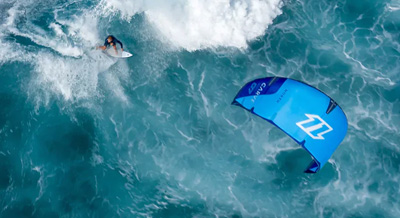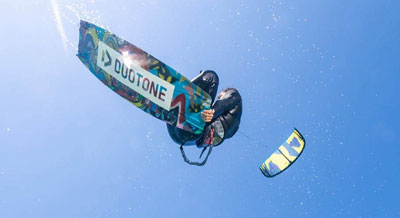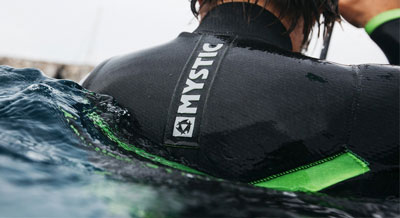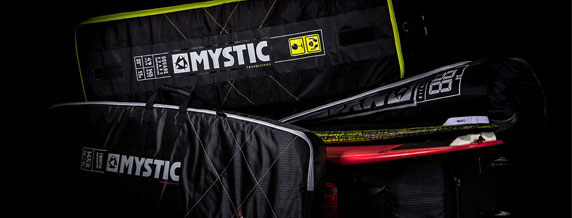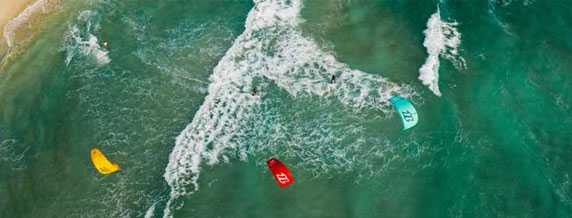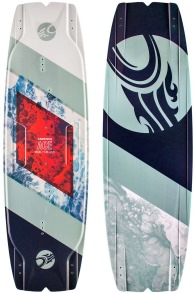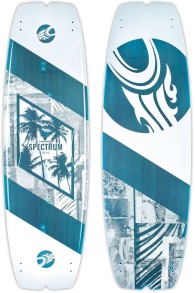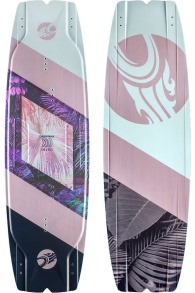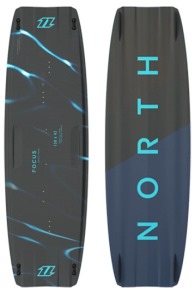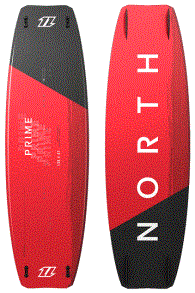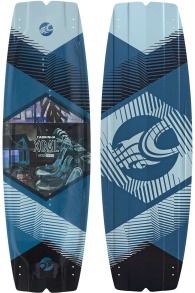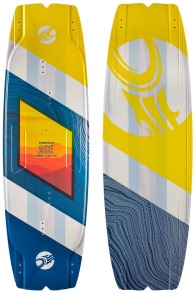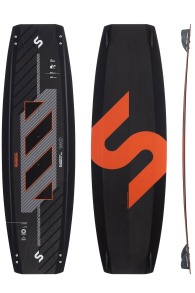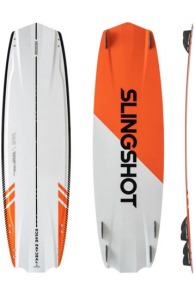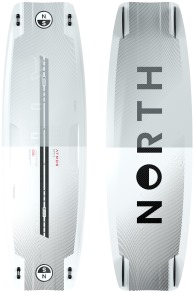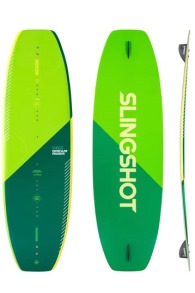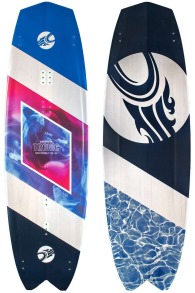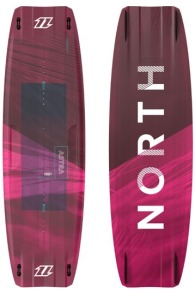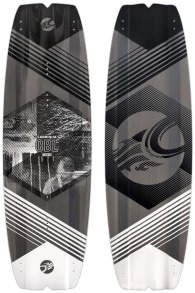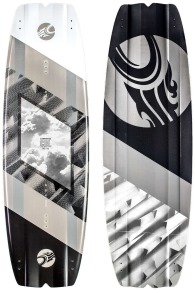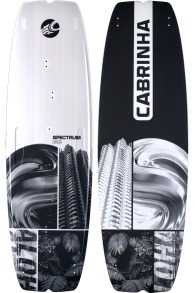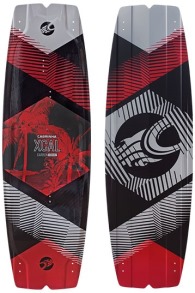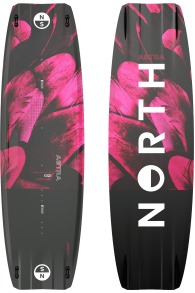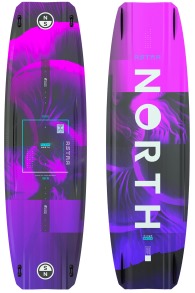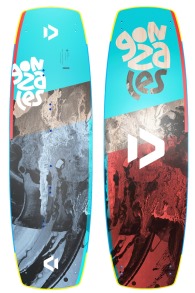- Home
- Kiteboard
Kiteboard
Looking for a new kiteboard? Kitemana sells twintip and directional kiteboards from all major kite brands like: Airush, Cabrinha, Carved, Core, F-one, Nobile, Naish, North Ozone, Reedin, Slingshot and more! Whether you are a beginner or a pro, at Kitemana you will always find the perfect kiteboard for you. For personal advice about your next kiteboard you can give us a call, write us and email or send us a message on WhatsApp. We’ve answered the most common questions when buying your new kiteboard at the bottom of this page. Please click here to read more .Are you looking for a new kiteboard? Then you've come to the right place at Kitemana. We sell twintips, directionals, and Foil kiteboards from all major kitesurfing brands such as Airush, Cabrinha, Carved, Core, F-one, Naish, North, Duotone, Ozone, Reedin, Slingshot, and more! Whether you're a beginner or a pro, at Kitemana, you'll always find the perfect kiteboard for your riding style and kitesurfing level. We're happy to help you make the right kiteboard choice. For professional advice, you can call us, email us, or send us a message on WhatsApp. We've already answered the most frequently asked questions about buying a new kiteboard at the bottom of this page. Click here to read more.
Kiteboard
Looking for a new kiteboard? Kitemana sells twintip and directional kiteboards from all major kite brands like: Airush, Cabrinha, Carved, Core, F-one, Nobile, Naish, North Ozone, Reedin, Slingshot and more! Whether you are a beginner or a pro, at Kitemana you will always find the perfect kiteboard for you. For personal advice about your next kiteboard you can give us a call, write us and email or send us a message on WhatsApp. We’ve answered the most common questions when buying your new kiteboard at the bottom of this page. Please click here to read more .Are you looking for a new kiteboard? Then you've come to the right place at Kitemana. We sell twintips, directionals, and Foil kiteboards from all major kitesurfing brands such as Airush, Cabrinha, Carved, Core, F-one, Naish, North, Duotone, Ozone, Reedin, Slingshot, and more! Whether you're a beginner or a pro, at Kitemana, you'll always find the perfect kiteboard for your riding style and kitesurfing level. We're happy to help you make the right kiteboard choice. For professional advice, you can call us, email us, or send us a message on WhatsApp. We've already answered the most frequently asked questions about buying a new kiteboard at the bottom of this page. Click here to read more.
Buy Kiteboard Online at Kitemana
Buying a kiteboard is easy and fast online at Kitemana. Whether it's your new twintip or directional surfboard, Kitemana always has a very wide stock of kiteboards for all riding styles. For the twintip kitesurfer, we have special kiteboards for freeride, freestyle, big air, and light wind. The dedicated wave riding kitesurfer can turn to us for directionals with different constructions and all kinds of shapes. We sell twintip and directional kiteboards from all major brands, as well as a number of specialized smaller brands like Lieuwe and Appletree. With such a large selection, it can sometimes be difficult to find your perfect kiteboard. To make it a little easier, we've already compiled the most frequently asked questions about purchasing a new kiteboard for you. If you still have questions after reading this page, please feel free to contact us via email, WhatsApp, phone, or visit our megastore for personalized advice.
Most frequently asked questions when purchasing a kiteboard:
- 1. What are the different types of kiteboards?
- 2. What is the difference between a twintip and a directional kiteboard?
- 3. What is the best kiteboard for me?
- 4. What is the best kiteboard for beginners?
- 5. What size kiteboard do I need?
- 6. What is included with my new kiteboard?
- 7. Which kiteboard brands does Kitemana sell?
- 8. Should I use a leash with a kiteboard?
- 9. Does Kitemana sell hydrofoil kiteboards?
- 10. Does Kitemana also sell used kiteboards?
- 11. Does Kitemana ever have a kiteboard sale?
What are the different types of kiteboards?
Kiteboards come in many different shapes and sizes. At the beginning, you may not be too concerned about this, but as you spend more time kiteboarding, you quickly develop your own preferences and style. Then it's time to choose a kiteboard that suits you! To make it easy, we have divided the different types of kiteboards into two groups: twin tip and directional kiteboards.
Twintips are ridden with both your left and right foot forward, without having to turn your board. As a beginner, this may feel unnatural at first because everyone has their preferred side, but twin tip kiteboards are by far the most commonly used type because they offer you all the freedom while freeriding in the water. A twin tip kiteboard is usually completely symmetrical in shape, so there is not one front but two. Another type of kiteboard is the directional kiteboard. These boards are designed to ride in one direction. If you want to jibe, you turn your entire kiteboard around. These types of kiteboards are often used for riding waves (surfboards) or for racing. The shape of a directional kiteboard is asymmetrical.
There are so many different kiteboards on the market because there are many different styles. Every kiteboarder has their own preference for what they enjoy, this way of kiteboarding is called riding style. With kiteboards, a distinction is made between beginner, freeride, freestyle, lightwind, wakestyle, surf, and race.
What is the difference between a twin tip and a directional kiteboard?
There is a big difference between a twintip and a directional kiteboard. A twintip is the kiteboard you learn kiteboarding with and is actually in almost every kite surfer's quiver. As previously mentioned, a twintip has a parallel shape with two bindings and four fins. With a twintip, you can easily ride upwind, make high jumps, and do unhooked tricks, for example. There are twintips for freeride, freestyle, wakestyle, lightwind, and big air. Click here for an overview of our twintip collection.
A directional is used by kite surfers who love nothing more than playing with the waves. A directional kiteboard resembles a surfboard and is therefore only used for wave riding, strapless freestyle, or lightwind kiteboarding. The biggest difference from a twintip is that these directionals are asymmetrical and therefore have only one front, unlike the symmetrical twintips. Click here for an overview of our directional surfboards.
A foil kiteboard, also known as foilboard or hydrofoil board, is a specialized type of kiteboard designed to be used in combination with a hydrofoil. These hydrofoils are mounted with a mast under the foilboard, which lifts the board out of the water as speed increases. Foil kiteboards typically have a minimalist design with a long, narrow profile to reduce water resistance and maximize efficiency. They are often made of lightweight materials such as carbon fiber to optimize performance. Foilboards, like directionals, are asymmetrical and therefore have a front. Click here for an overview of our foilboard collection.
Check out our different kiteboards here
Twintip kiteboards Twintip - Big Air Twintip - Beginner Surfboards Lightwind kiteboards Foil kiteboards
What is the best kiteboard for me?
At Kitemana, we believe it's important that you buy the kiteboard that suits you best. Whether a kiteboard suits you depends on several criteria. To start, it's important to know whether you want a kiteboard for wave riding (directional), a regular kiteboard (twintip), or even a kitefoil kiteboard (foil). Secondly, your kitesurfing level plays a big role. As a beginner, you want a kiteboard with different characteristics than a more advanced kitesurfer. This has everything to do with certain techniques that give a twintip kiteboard specific characteristics such as: the rocker, flex, channels, and the size of the kiteboard. Our twintip page explains more about this, the same goes for directional surfboards. Being a beginner, you always start on a twintip kiteboard. A twintip rides upwind easily and you don't have to change the position of your feet when changing direction. Lastly, it's important to choose the right size. Choosing the right size kiteboard depends on your kitesurfing level and your body weight. Being a beginner, you always take a size larger than you normally would. This makes waterstarting and riding upwind easier. Someone weighing 80kg would normally ride on a kiteboard of about 136/138, but as a beginner, it's a good idea to go slightly larger, such as 140 – 144. For personalized advice, you can always contact us. The same goes for directional surfboards. Opt for a slightly larger directional with a bit more volume when starting to learn directional kiteboarding.
What is the best kiteboard for beginners?
If you're starting with kitesurfing, as a beginner kitesurfer, you'll begin with a twintip kiteboard. It's then important to choose a twintip that suits you as a beginner. There are three factors that are very important when choosing your first kiteboard: the rocker, the flex, and the size of your twintip kiteboard. To start, you want a twintip with little rocker. The rocker is the curvature in the board; a kiteboard with little rocker is quite flat, making it easy to generate speed and ride upwind. Secondly, flex is important. Flex refers to the flexibility of a kiteboard; the more flex, the easier the kiteboard is to bend. A board with a lot of flex provides comfortable riding characteristics, which is also something you want as a beginner kitesurfer. Finally, size is very important. You definitely don't want a kiteboard that's too small. With a larger kiteboard, you'll be able to ride away easily and gain height effortlessly. The size of your kiteboard depends on your weight; the heavier you are, the larger your kiteboard should be. A beginner kitesurfer weighing 80 kilograms will start with a kiteboard of approximately 140 to 144 cm. For personalized advice, you can of course contact us. So, in short, there are three factors to consider as a beginner kitesurfer when purchasing your new kiteboard:
What size kiteboard do I need?
When choosing a kiteboard, size is very important! Both for a twintip and a directional kiteboard. The size of the twintip or directional depends on several factors: your level, your favorite discipline, and your weight. Starting with choosing the right size twintip. As mentioned earlier, it's wise for a beginner to choose a twintip that is slightly larger than you would normally take. This will make you more stable, ride upwind easier, and get into planing more easily. As you improve, you will need different characteristics of a twintip. The characteristics depend on your favorite riding style. For example, as a big air kitesurfer, you want a twintip with not too much rocker, plenty of channels, and not too large. But as a freestyle kitesurfer, you want a lot of rocker and a slightly larger size. For all riding styles, there is a specific twintip made, including for light wind and freeride. Roughly speaking, an advanced kitesurfer weighing 80 kg has a twintip of about 138, and with 75kg, a 136. This can vary a bit depending on the twintip and riding style.
Choosing the right size directional surfboard is a bit trickier than your twintip. That's because there is another important factor to consider, namely volume. But also when choosing the right size directional, it applies that as a beginner, you take a larger size than an advanced kitesurfer. Even when you mainly use the directional, it's wise to take a directional with a bit more volume. If you are an advanced kitesurfer who loves nothing more than powered riding on high waves, then you want a bit less volume and a directional with a narrower outline to make it easier to perform those top and bottom turns. More information can be found on this page.
What is included with my new kiteboard?
At Kitemana, all twintips come with fins and a grab handle included. The size of the fins is determined by the supplier, allowing you to get the most out of the kiteboard. A larger fin provides more grip and makes it easier to ride upwind, while a smaller fin offers greater maneuverability.
Most directional surfboards are sold without fins. This is because the choice of fins can be quite personal. Some kiters prefer large, stiff fins while others prefer small, flexible fins. The product description will often indicate whether fins are included with the surfboard or not.
Are bindings and straps included with my kiteboard?
All twintip kiteboards are sold without bindings. This allows you to choose the bindings that best suit your kiteboard. There is a significant difference in kitesurfing bindings in terms of fit, size, comfort, and color. Therefore, this is a personal choice and twintips are sold without bindings.
Some directional surfboards come with straps included. If a surfboard comes with straps, it will be indicated in the product description.
Which kiteboard brands does Kitemana sell?
Airush: twintip and directional surfboards
Appletree: specialised premium directional surfboards only
Brunotti: twintip en directional surfboards
Cabrinha: twintip en directional surfboards
Carved: premium carbon twintip kiteboards
Core Kiteboarding: twintip en directional surfboards
Duotone Kiteboarding: twintip en directional surfboards
F-One: twintip en directional surfboards.
North: twintip en directional surfboards.
Lieuwe:Specialized premium handmade twintip kiteboards.
Naish: twintip en directional surfboards.
Ozone: twintip kiteboards
Reedin Kiteboarding: twintip en directional surfboards
Slingshot Kiteboarding: twintip en directional surfboards
Should I use a leash with a kiteboard?
Should I use a leash with a kiteboard?
We advise against using a leash with a twintip. The leash can cause your kiteboard to come back after a crash at high speed and potentially hit your head. You want to avoid this at all costs, so do not use a leash. And if you really want to use a leash, for whatever reason, then use the roll leash. The roll leash is less likely to come back hard after a crash.
The same story applies to a directional surfboard but with a small caveat. In the Netherlands, you are unlikely to need a leash. But if you go surfing somewhere abroad on a reef far out at sea with huge waves, it may be useful to use a leash.
Does Kitemana sell hydrofoil kiteboards
At Kitemana, we have a wide selection of hydrofoil kitesurf boards, wings, and masts. We sell hydrofoils from all major brands and a few specialized brands, such as Moses and Levitaz. So, we have a suitable kitesurf hydrofoil for every skill level and budget. Check out our foil kiteboards here.
Does Kitemana also sell used kiteboards?
Sure thing! At Kitemana, we have an extensive selection of used kitesurf boards, kites, and even bars. We sell used kiteboards from all major brands and also a few specialized brands, such as Lieuwe and Appletree. At Kitemana, we have a suitable kitesurf board for every skill level and budget, whether it's a directional board or a foil kiteboard. Check out our second-hand kiteboards here.
Kiteboard sale
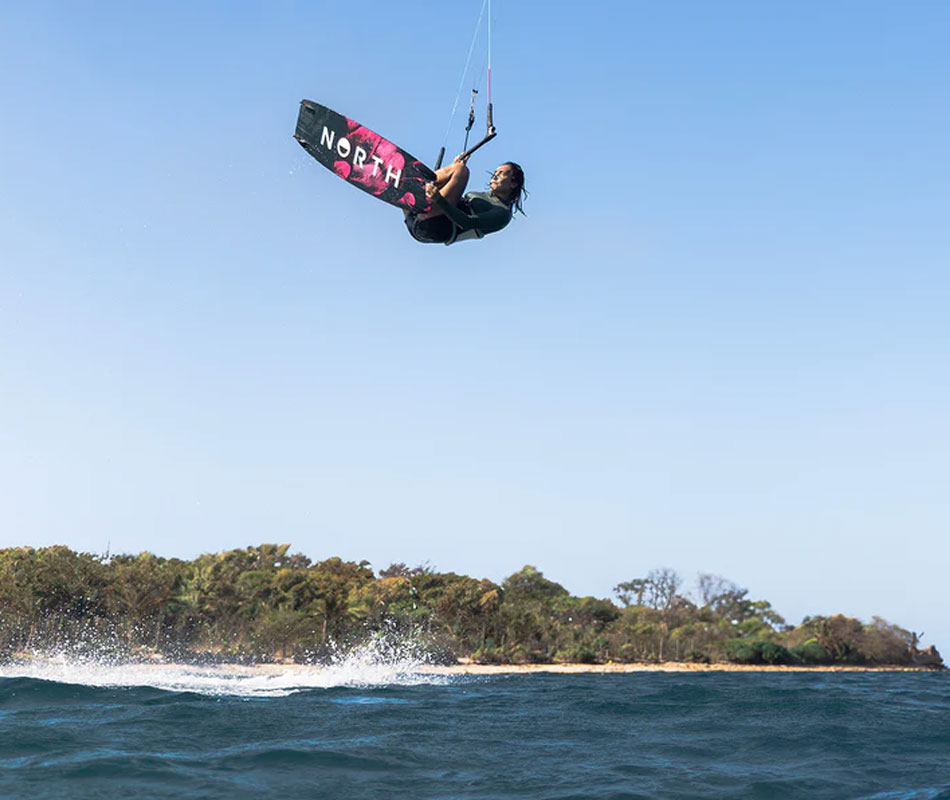
Kitemana kiteboard sale
At Kitemana, we always have kiteboards on sale. These kiteboards are often from previous years, also known as clearance kiteboards. However, during special promotions, other kiteboards may also appear on sale, so keep an eye on this page!
Added to basket
| Subtotal | 0,00 |
| Shipping costs NL | 0,00 |
| Total (incl 0% VAT) | 0,00 |
You have no product(s) in you basket.
Weet je niet waar je moet beginner?
Contact our customer service for advice

